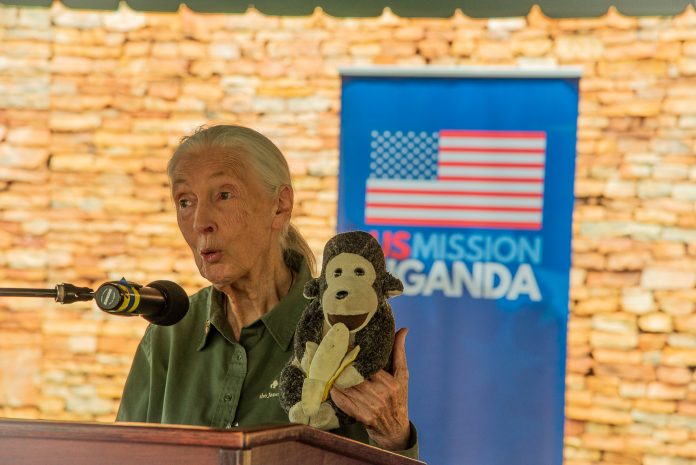
“I want to make sure that you all understand that each and every one of you has a role to play. You may not know it. You may not find it. But your life matters, and you are here for a reason.” These were some of the most profound words from Dr. Jane Goodall’s recently revealed interview with Netflix’s "Famous Last Words" — a feature which interviews celebrities and figures to tape their last words in complete privacy, knowing that their interview will only be released after their passing.
Interviewed by Emmy Award-winner Brad Falchuk under strict confidentiality, the interview was held on an empty stage and captured by remotely operated cameras. The footage was securely held until she died, unedited, so that nobody outside the pair would know the contents.
Goodall needs no introduction. Her story is taught to elementary school students, written down in children’s bedtime stories and shared with young girls to inspire them to dream big. She has been an icon for generations and generations more to come. Apart from her 65-year study of wild chimpanzees in Gombe, Tanzania, Dr. Goodall was a global advocate for human rights, animal welfare, species and environmental protection. Despite her long standing and undeniable legacy, she still asks, “In the place where I am now, I look back over my life. What message do I want to leave?”
This single question imparts the first lesson we can take from Goodall – humility. She is one of the most well known and renowned conservationists whose life has been captured in several books and documentaries. She has been the recipient of numerous honors, such as the Templeton Prize (2021), the Stephen Hawking Medal for Science Communication (2022) and the Presidential Medal of Freedom (2025). Even after years of groundbreaking work, her question wasn’t about recognition but about meaning. She wondered about the message she could leave behind for others.
Moreover, it was her deep, relentless curiosity which led her to achievements. Interested in animal behaviour from an early age, she left school at 18 to work as a film production assistant until she gained passage to Africa, where she worked under paleontologist and anthropologist Louis Leakey. As a young woman in the 20th century, Goodall ventured into a completely different country to study chimpanzees—an extraordinary act of courage and determination for her time. It must have been unimaginably difficult back then to navigate unfamiliar landscapes, face skepticism from a male-dominated field and live far from the comforts of home. But her desire was not limited to knowledge. She wanted to use her learnings to understand, care and make a difference. Her curiosity was not solely academic. It was rooted in compassion and respect for life in all its forms.
This is perhaps the most important part of Goodall’s legacy – empathy. Her curiosity, talents and goals stemmed from her compassion for animals. In the 1960s, she adopted a plant-based diet after witnessing the cruelty involved in the meat industry. She didn’t just advocate for chimpanzees. She reminded humanity of its own kinship with nature. In an interview, she said, “Once you are prepared to admit that
we humans are not the only beings on the planet with personalities, minds and, above all, emotions and once you are prepared to admit that animals are sentient and can not only know emotions like happiness, sadness, fear but especially they can feel pain—then, as humans with advanced reasoning powers, we have a responsibility to treat them in more humane ways than we so often do.” Goodall teaches us that true empathy extends beyond our species—and that we should all dream to dedicate ourselves to something bigger than our own lives, something that leaves the world a little kinder than we found it.
To have a glimpse of the vision that Dr. Goodall envisioned us to see, each of us can pause and reflect on the same question: “What message do I want to leave?” As we move forward in our lives and careers, perhaps we too can lessen already-existing suffering and uplift another life. In doing so, we honor her legacy—all of nature is interconnected, and that living purposefully means giving back to the Earth in the hope of making our world a better place.
